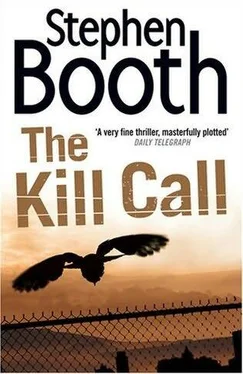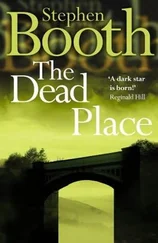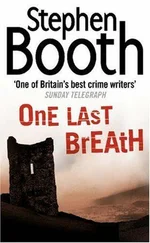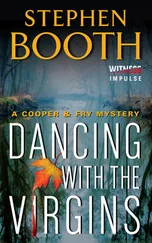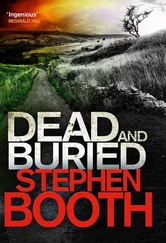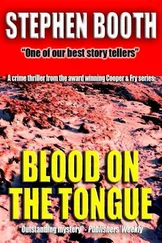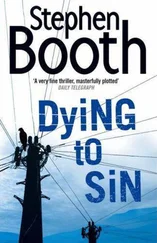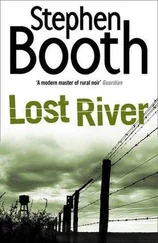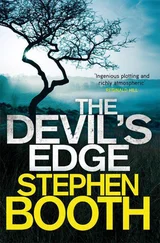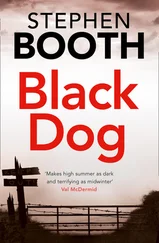Stephen Booth - The kill call
Здесь есть возможность читать онлайн «Stephen Booth - The kill call» — ознакомительный отрывок электронной книги совершенно бесплатно, а после прочтения отрывка купить полную версию. В некоторых случаях можно слушать аудио, скачать через торрент в формате fb2 и присутствует краткое содержание. Жанр: Полицейский детектив, на английском языке. Описание произведения, (предисловие) а так же отзывы посетителей доступны на портале библиотеки ЛибКат.
- Название:The kill call
- Автор:
- Жанр:
- Год:неизвестен
- ISBN:нет данных
- Рейтинг книги:4 / 5. Голосов: 1
-
Избранное:Добавить в избранное
- Отзывы:
-
Ваша оценка:
- 80
- 1
- 2
- 3
- 4
- 5
The kill call: краткое содержание, описание и аннотация
Предлагаем к чтению аннотацию, описание, краткое содержание или предисловие (зависит от того, что написал сам автор книги «The kill call»). Если вы не нашли необходимую информацию о книге — напишите в комментариях, мы постараемся отыскать её.
The kill call — читать онлайн ознакомительный отрывок
Ниже представлен текст книги, разбитый по страницам. Система сохранения места последней прочитанной страницы, позволяет с удобством читать онлайн бесплатно книгу «The kill call», без необходимости каждый раз заново искать на чём Вы остановились. Поставьте закладку, и сможете в любой момент перейти на страницу, на которой закончили чтение.
Интервал:
Закладка:
She thought of Ben Cooper. The one person, perhaps, who had never entirely drawn away. She wasn’t sure whether that was a good thing, or not. It had been so typical of him to turn up at the crime scene on Longstone Moor today. She remembered the moment she’d spotted Cooper approaching the outer cordon — an unmistakable figure striding effortlessly up the slope towards her, shrugging off the wind and rain as if he was a natural part of the landscape, a creature totally at home in its own environment. He always looked vaguely windswept, even in the office, with that infuriating lock of hair that fell across his forehead. Yet he also radiated a kind of intensity that Fry rarely saw in anyone, let alone the police officers and other professionals she worked with day in and day out, people trained to say exactly the right thing in all circumstances. You could rely on Ben Cooper not to do that, at least.
Fry sighed. Of course, Cooper had been right about her antipathy to hunting. She didn’t think it was just some kind of class thing, though. At least, she hoped it wasn’t. Though hunting was often associated with class privilege and social hierarchy, there had always been a lurking violence at the heart of the sport that turned it into a kind of blood ritual.
When she was a studying at UCE, there had been fellow students who had been deeply involved in animal rights protests, including the campaign against fox hunting. Some of them were the sort of people whose instinct was to be anti everything, but the propaganda had been pervasive, the leaflets handed out, the posters of mutilated animals pinned to the notice boards in the Students’ Union.
To Fry, it had been obvious that the demand for a ban on fox hunting in Britain had as much to do with class politics as a love of animals. As any eighteenth-century farm labourer transported for killing a hare could have told you, the hunt was always about the relative status of human beings.
The impression most people had of fox hunting came from its depiction in art. There, hunting had always been portrayed as the preserve of the few, a jealously guarded conspiracy.
There was a painting Fry had seen in the National Gallery once, on a visit to London. A portrait of Lord Somebody or Other, Master of the Hounds. He had been painted dressed in a black hunting outfit, his dark shadow accompanying him in the background, like the spectre of death. His boots had been polished to a high gloss, and he gripped the silver handle of a riding crop as though he was just about to thrash a servant rather than his horse. To the observer, his expression suggested that he was regarding an incompetent groom who’d just dropped a brush.
When Fry had studied the label, she realized that his lordship must have been perfectly happy to appear arrogant and potentially violent, since he had given the portrait to the National Gallery himself. Hunting art had always been frank about the cruelty of the sport. These days, everything was about presentation and image. Would there have been the same demand for a ban if hunting had a better image in art?
Yet every stately home and every country pub still had hunting prints rotting from their frames. That bloody symbolism survived.
Cooper stepped outside into the back yard at Welbeck Street, and turned his face up to the rain, wiping a spatter of water from his face. On Sunday, it had been raining at the National Memorial Arboretum, too. Trickles of water had formed on the memorial at the end of The Beat, streaking the surface of the stone. They looked so much like tears that even Matt Cooper had been silenced by the symbolism. Ben had pulled up his collar, hunched his shoulders inside his coat, and regretted ever agreeing to come.
‘They’ve done it nicely, though,’ Matt had said. ‘Good job.’
‘Yes, nice.’
Claire gave Ben an odd look then. What was that look supposed to mean? Ben could never really understand what his sister was thinking, the way he could with Matt. Did she share his own reaction? Did their brother’s hearty matter-of-factness have the same effect on her — that sinking feeling of grief and loss that was rammed home by the simple act of watching someone read an inscription on a plaque?
Yes, they’d done it nicely. Written their father’s final epitaph in a few strokes of engraving. Sergeant Joseph Cooper, Derbyshire Constabulary, killed on duty. Recorded for ever. Permanently set in stone.
‘There are so many,’ said Claire. ‘You don’t realize, do you?’
Ben had gazed around the site at all the memorials to hundreds of thousands of service personnel who’d died for their country. Surely one police sergeant who had been kicked to death by drunken yobs on the streets of Edendale was a unique individual, even among so many deaths?
A few months ago, Ben had been asked to join an organization called COPS, one of those convenient acronyms that police services across the country were so fond of. Its initials stood for Care of Police Survivors. Last July, he’d attended their annual service of remembrance, complete with a fly-past by a police helicopter and a cavalcade of motorcycles ridden by the Blue Angels.
He’d come away from that service with mixed feelings. Some parts of it had been moving, like the sight of so many other relatives of dead police officers. But he wasn’t so sure about the idea of turning the occasion into a spectacle, as if it was the Edinburgh Tattoo. People grieved in different ways, he supposed. Some preferred to remember their loved ones in a public way, rather than confine their feelings to private grief. Yes, emotions were sometimes easier to deal with in public, when people felt the necessity to behave properly, and not to be an embarrassment.
At the time of the remembrance service, The Beat had been under water and impossible to reach. Hundreds of trees in the arboretum had to be replaced because of the effects of repeated flooding. Not just in winter, either. Last summer, a temporary lake had formed, drowning The Beat. Fifteen inches of water had surged across the site, washing away stakes and flattening trees.
Ben had promised himself that he’d come back one day, and Matt and Claire had jumped on the idea with enthusiasm, much to his surprise. He shouldn’t think that they didn’t grieve too, just because they didn’t always show it. For heaven’s sake, he didn’t show it too much either, did he?
‘Perhaps we should go back to the visitor centre,’ Claire had said. ‘The rain is getting a bit heavy.’
‘In a minute,’ said Matt. ‘Give me a minute.’
Something in the tone of his voice had sounded wrong. Matt’s back was to them, and he hardly seemed aware of the rain falling on his shoulders.
Ben turned and walked a few yards away towards the RAF memorial. Alongside it, he saw a smaller grove — two rows of hawthorns supported by wooden posts. They looked to be young trees, seven or eight years old, maybe. They were probably intended to form an arch eventually. Each tree carried a label bearing a curious logo, with a name and number. He saw 7 Group Bedford, and 8 Group Coventry next to it. Before he could look more closely, Matt called to him from the other side of The Beat.
‘It’s funny,’ he said, ‘but in Dad’s day, we all believed the police were on our side. They kept us safe, protected us from criminals, all that stuff. We respected them for it. Everyone I know would have done their best to help the bobbies because of that. But now it’s changed. And I don’t know where it went wrong.’ He looked up at his brother. ‘Maybe you know, Ben.’
Ben blinked. Where the heck had that suddenly come from? What switch had turned on the flow of his brother’s resentment so abruptly?
He looked at Claire, but of course she’d been nodding as Matt spoke.
Читать дальшеИнтервал:
Закладка:
Похожие книги на «The kill call»
Представляем Вашему вниманию похожие книги на «The kill call» списком для выбора. Мы отобрали схожую по названию и смыслу литературу в надежде предоставить читателям больше вариантов отыскать новые, интересные, ещё непрочитанные произведения.
Обсуждение, отзывы о книге «The kill call» и просто собственные мнения читателей. Оставьте ваши комментарии, напишите, что Вы думаете о произведении, его смысле или главных героях. Укажите что конкретно понравилось, а что нет, и почему Вы так считаете.
